
"Whatever happens, we'll come back for you"
Onoda: 10,000 Nights in the Jungle told the true story of one of the last Japanese holdouts after WWII. Japan surrendered on September 2, 1945. The war ended for Onoda Hiroo 29 years later on March 9, 1974. During his training as an intelligence officer he was told he had to survive at all costs and that "Whatever happens, we'll come back for you.” Onoda learned the hard way that the military was not as loyal to him as he was to the mission.“We will be back for you. We will be back. Whatever happens---survive!”
Late in WWII, Onoda Hiroo fails pilot school because he has a fear of heights and dying. He’s recruited to train as an intelligence officer and in guerilla warfare in December 1944. Before he leaves, his father (mother IRL) gives him a dagger to kill himself with rather than be captured should the need arise. When he arrives on Lubang Island none of the other officers will help him with his mission which was to disable the airstrip and port. Most of the soldiers are hungry, demoralized, and/or ill. The Americans take the island shortly after his arrival. Soon the only Japanese soldiers not dead or captured are Onoda and the three men he chose to work with him---Kozuka, Shimada, and Akatsu. Believing they must hold their ground until more Japanese forces arrive, they set up camp in the jungle and cause damage to the farmers’ fields in order to keep the locals afraid of them. They subsist on whatever they can find or steal, taking up residence in caves or homemade huts. The small group of holdouts refuse to believe the war is over and patiently wait for reinforcements.
“Try to change the way you see things”
Two different actors played Onoda and his second in command, Kozuka. They all performed admirably as the characters aged and learned to survive in the jungle and rely on each other. The film confined most of the shots to the men and their duties which displayed their arduous methods of staying alive. Bound by their limited outside contact, their lives seemed incredibly sad. They were completely isolated and separated from family and loved ones. As much as the film focused on the holdouts it would have been nice to gain the locals’ perspective of the killers in the hills and the fear they instilled for a time.
“They know that what is complicated and even incomprehensible, sounds true!”
My first thought when Onoda’s father handed him the dagger and told him, “Your body is the Fatherland. Do not let it fall into enemy hands,” was the Spartan mothers’ declaration to their sons, “With your shield or on it.” Ordered not to die and trained to unconditionally obey orders, unwilling to return home defeated, and determined to prove himself, Onoda’s psyche was trapped in a nightmare in the jungle of Lubang. The outside world and even loved ones attempted to convince Onoda that the war was over, but he could only see conspiracy theories everywhere he looked, convinced that Japan was still fighting. Eventually, he had access to newspapers, magazines, and a transistor radio but believed it was all an elaborate ruse to trick them. At some point, Onoda’s rigid obedience and views appeared to come across as an over-inflated sense of self. Why would the enemy go to such extraordinary lengths to trick one man? If he was that important they could have sent in a wave of soldiers to kill him or just bombed the jungle. Onoda had a high level of cognitive dissonance as he clung to his beliefs in the face of harsh opposing facts.
“What if we killed people we’re no longer at war with?”
Onoda and his men were resourceful and resilient. The youngest left after nearly 5 years and another was killed after almost nine. When the second in command was killed after 27 years of holding out, it seemed to chip away at Onoda’s confidence. Despite their incorrect assessments, Onoda and his men were a product of their training and propaganda. They truly believed they were serving the greater good by holding their position on the island. It took as much determination as denial to be separated from family and friends, to live on roots and fruit often with only rudimentary shelter for nearly three decades. In 1974 a Japanese adventurer discovered Onoda and befriended him. The young man caused Onoda an existential crisis as the holdout could no longer deny that Japan and the world had changed. The military bore responsibility as well. The loyal soldiers killed 30 inhabitants over the years. Two of the four died pointlessly and Onoda lost 30 years of his life because no one cleaned up the mess they created. These soldiers were imbedded on islands in the last months of the war when the writing was on the wall. VE Day occurred not long after Onoda was stationed on Lubang and Japan surrendered in August of 1945. All it took was for Onoda’s superior to come back for him. Unfortunately, for Onoda, his men and the people of Lubang, it took nearly 30 years to do so.
30 April 2024
Considerați utilă această recenzie?

Early Train from Taipei
3 oamenii au considerat această recenzie utilă
"There will be no end to the sorrow"
Early Train from Taipei is one of about 200 Taiwanese language films to have survived that were made between 1955-1970. This film was popular during its day and has been restored with only a few flickering skips still evident. There was no doubt what type of film this was going to be during the intro when an artist tells his friend there is a sad story behind two disparate paintings of the same woman. While I can appreciate its place in history, the endless melodrama and flat characters caused my interest to wear thin by the end.Siu Lan and Hue Thao are two beautiful people who live and work in the countryside and love each other. Siu Lan’s father died leaving her ailing mother in deep debt. When the creditor comes calling demanding payment, Siu Lan asks a friend to find her work in Taipei. The work turns out to be as a taxi dancer. Within a couple of weeks, she’s sending significant money to her mother to help pay down the debt. Hue takes the train to visit her but derides her for her choice of employment implying she needs to go home. He leaves her a note and catches the train, hiding from her when she follows him to the station. Siu Lan attempts to quit but her boss does not handle her resignation well, and from there on her life takes a decided turn for the worse.
A heavy-set couple back home brought comic relief whenever they encouraged Hue to visit Sui Lan. But that laughter was soon drowned in a torrential flood of tears. Tears of guilt. Tears of loss. Tears of sorrow and anger. Tears of hopelessness and remorse. And tears of pain. The last third of the film was a relentless parade of pain. With each new dilemma the catastrophes felt more like manufactured drama desperately trying to force the audience to cry than from any organic developments to the story. Siu Lan and Hue were tortured over and again. The lyrics to the songs implied that Siu Lan had been enticed by greed and the big city lights, but she appeared to remain the same lovely girl she always had been and was only working in the city to pay off her mother’s debts. She would have preferred to stay in the country with Hue and her mom but her innocence was exploited by the cruel club owner. Whatever lessons fate was trying to teach her for having sought to make money in the city, I’d say it was overkill.
I did like that the connections between the women were strong. Siu Lan’s friend, Suat Gno, stayed loyal to the end and felt deep regret over finding Siu Lan a job at the club. Suat Gno also cared for Siu Lan’s mom when Siu Lan was unable to. It was good to see Ko Yu Min, veteran of numerous kung fu flicks, play the defense attorney (paid by Suat) exasperated with Siu Lan’s martyr complex. His perfectly timed eyeroll expressed my sentiments exactly. It was difficult to watch this woman who only had good intentions be victimized over and over again. First by the lascivious men in charge of the club and then later by the justice system. Lastly by herself. Taiwan was going through a growth faze with young people heading to the cities for better jobs. Apparently, this melodramatic tale connected with audiences and was quite popular. The Last Train from Kaohsiung was a successful prequel to this film and there was possibly at least one sequel to Early Train. I would like to find the sequel to see if they saved Siu Lan and Hue Thao not only from their emotional damage but also the physical damage they endured.
Early Train from Taipei was a love story between two people torn apart by the evils of the big city. Beauty and “greed”, even if used for protecting the family were punished like using dynamite on a gnat. I appreciated this time capsule for what it was and am grateful it was saved and restored for future generations to see. Despite that, I struggled with the almost gleeful degradation of Siu Lan and Hue Thao as a cautionary tale for young people desiring to leave home for the promise of a better life in the city.
17 April 2024
Considerați utilă această recenzie?

"Darkness makes me nervous"
If you threw some David Lynch and Wong Kar Wai movies in a blender along with the mood and palette of Blade Runner, mixed them up and threw them on a canvas, you would get a psychedelic Jackson Pollock work of twisted dreams and reality battered with ear and eye piercing sound and colors titled, Call for Dreams.“Every act of recording transforms the present into memory.”
Eko runs an ad in the paper soliciting a Call for Dreams. She receives messages about people’s dreams on her cassette answering machine. If she chooses the person, she helps to reenact the dream, much like a call girl only without the sex. Somehow the dreams shared and reenacted become intertwined with reality. Or do they? There is a fine line between dream and dreamer, reality and alternate realities, perhaps even sanity and madness.
“There is no ‘real’ anymore. You choose to act in a reality of your choice.”
The world Eko resides in is eternally dark and raining. Blue and pink lights follow her juxtaposed with pungent greens and yellows, and pops of retina damaging reds. City nightlines are showcased as she hurls through brightly lit tunnels. The music, colors, and movements twirl surreally as in a dream state. Only when the camera focuses on a police officer in Israel does it appear anchored in reality and then like a puff of smoke, the reality changes.
“People want to remember events, not necessarily in the way they happened.”
Is the film about dreams, reality, or memory? Only director Ran Slavin knows for sure. If you are in the mood for a mind tripping, illusion of reality and dream, this might be one to try. Keep in mind, “Is the dreamer dreaming the dream or is the dream dreaming the dreamer?"
11 April 2024
Considerați utilă această recenzie?

The End of Summer
3 oamenii au considerat această recenzie utilă
"Is this it? Is this really it?"
“Life is a running stream, forever changing.” Ozu Yasujiro once again examined how the world was ever changing and its effect on the individual and family dynamics. In his penultimate film, The End of Summer, a care-free father who does what he wants regardless of public opinion causes headaches for his family.“With so many captains, this ship will end up in the mountains!”
Manbei is a widower and owner of a small sake brewery that is beginning to fail. He spends most of his time disappearing during the day which causes consternation for his family and employees. Turns out he is seeing an old mistress again. Aside from his day pleasures and business concerns, the family is also trying to match-up Akiko, his widowed daughter-in-law, and also his younger daughter Noriko. Neither woman is receptive to the overtures of the men provided. Akiko is happy as she is with her young son. Noriko is in love with an assistant professor who moved away. Fumiko is the daughter who chastises the father for seeing the woman who had made her mother cry when she was alive. Manbei possibly has another daughter by the mistress though he is the only one who believes that. Yuriko’s only interest in Manbei as a potential father is securing a mink stole from him. Everything is fun and games until Manbei suffers a heart attack one evening which draws the family together.
“He did as he pleased his whole life…but he was also quite happy. It’s a rarity these days.’”
While the rapscallion of a father led his family on a merry chase, it was the sisters-in-law who captured my attention. Ozu made no moral judgements on the promiscuous head of the family but I found his childish behavior tiring. Akiko and Noriko (familiar Ozu names) had one of the most beautiful bonds in filmdom. Akiko gave Noriko advice on life and relationship matters. Akiko told Noriko when considering a husband, that character was more important than conduct, conduct could be changed but character couldn’t. Noriko wouldn’t allow Akiko to speak poorly of herself, charging her 100 yen every time she referred to herself as old. At the mother’s memorial service, they walked by the water and gracefully squat to talk perfectly in sync. Near the end of the film in a solemn moment they did the same thing. Despite being told differently by everyone else, the two mirror the father’s life philosophy and chose the paths that were right for them.
“I do miss the old days”
The changing world also crept into Ozu’s style with flashing neon lights used in several scenes. Instead of the rectangular imagery often used, the circular sake barrels were reflected in much of the family’s décor. Music and names in his movies were often repetitive as if they were barely an afterthought. In this film he used the composer from Good Morning. Though slightly more intrusive, it was mostly limited to transitions between scenes. Bird songs, crickets, and rhythmic drumming filled most scenes as characters talked with each other in their carefully composed settings. In two critical scenes, the faint whistle of the trains he loved could be heard. It was time for a long trip for one of the characters.
“Destiny is a strange thing.”
The ending of the film was darker and more somber than most Ozu films. Crows and the crematorium smokestack dominated the scenes with a couple of farmers ruminating on the cycle of life. Perhaps Ozu was contemplating his own death more. His mother died in the same year this film came out and he would die of throat cancer in 1963. That’s not to say the film was downbeat. Manbei provided humorous hijinks and the sisters-in-law provided a warm united front as they mapped out their own futures. The End of Summer provided a curious mix of humor and pathos with the scales carefully balanced in Ozu’s favor.
11 April 2024
Considerați utilă această recenzie?
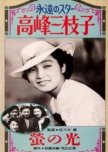
Hotaru no Hikari
3 oamenii au considerat această recenzie utilă
"We'll take a cup of kindness yet, for auld lang syne"
The title Hotaru no Hikari referred to the Japanese version of the song Auld Lang Syne. The film focused on two school girls in a tight group of friends just before and after graduation. Love, friendship, and broken hearts flowed freely as the young women tried to navigate their feelings and world outside.Sanae and Omie are close friends readying for graduation. Their lives have very different paths before them. Omie is a gifted pianist and going to Europe for further studies. Sanae is to be married to the bedridden son of the man who paid for her schooling and saved her father’s shop after an earthquake. Sanae is in love with Ariga, “The Prince”. When he asks her to marry him, she refuses without explaining. Distraught at a future without any brightness she goes to her friend Omie for help. Although Omie supports her, she excitedly mentions that Ariga is going to be accompanying her to Vienna. Broken at the news Sanae leaves but doesn’t return home. She makes her way to her “retired” teacher’s house where she helps with the farm work. Sanae may have stepped aside for her friend, but Ariga has other ideas. As the center of the friend group’s attention, Omie does not offer Sanae the same generosity in love.
This film took some effort to recognize the main characters. Initially, many of the students were introduced only to be sent to the sidelines. It did not help that Sanae and Omie/Ishii went by several names. The realities for women were stressed by parents and school authorities. Being a wife and mother was the only path to happiness for women. And women were to marry whoever their parents chose for them even if that person was an invalid. Director Sasaki dared to question some of those presumptions. Omie told Sanae, “Before being a daughter, we must think we are women first.” She also counseled her friend to not be afraid to leave her family and make a life for herself. Sanae boldly chose to do just that. The betrothed Sanae recognized her father’s actions for exactly what they were, “I was sold.”
Early in Japan's talkie era, HnH utilized sound with numerous sing-a-longs with the girls on their outings and in school. Omie demonstrated her ability on the piano several times as well. In the 1938 version of pop-ups, silent film intertitles and clips from Sanae’s diary often appeared to explain things to the audience. The diary pages revealed her innermost feelings and thoughts which I liked but some of the other written explanations would have been better acted out. The film was beautifully shot for the time with creative shots of scenery and buildings interspersed. Despite those appealing frames, time has not been kind to Sasaki's work with many scenes left quite blurry, often obscuring faces.
Also known as Auld Lang Syne or The Light of the Fireflies, Hotaru no Hikari was an interesting watch of young women breaking with tradition. My biggest complaint arose from the final act’s melodramatic noble idiocy. I had become invested in Sanae’s decisions and was quite aggrieved by the ending. This 1938 melodramatic story of friendship and love could have used a cup of kindness to ease the bitterness of the drink.
4/4/24
Considerați utilă această recenzie?
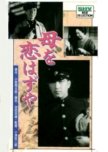
A Mother Should Be Loved
3 oamenii au considerat această recenzie utilă
"One's life is so fragile"
A Mother Should be Loved is difficult to rate for it is lacking the first and last reels of film. Ozu Yasujiro’s film still has compelling moments amid the melodrama of a son discovering his mother is not his biological mother, but his stepmother after his father dies.At breakfast before school, Sadao and Kosaku’s father has promised to take them to the beach on Sunday. While the boys are at school, word comes that they must return home for something has happened to their father. Sometime after the funeral, the father’s old school friend visits the mother, Chieko, and asks her to continue to raise Sadao as her own even though he was the child of the father’s first wife who died. Chieko loves the boy and says there was never a question she would and has no intention of telling Sadao she’s not his mom. Trouble comes a few years later when Sadao applies for college and sees on his birth certificate that Chieko is not actually his birth mother.
The film is a tad melodramatic for Ozu, though he wasn’t afraid to dip his toe into the sea of tears. At one point I wondered if it was a melodrama or murder mystery as characters died off. But external conflict was not something Ozu used much. This was once again a look at a family being torn apart and whether the characters had the resiliency to bounce back and forge something better. Ozu originally wanted the title to be Tokyo Twilight but the studio insisted on having mother in the title. That makes sense when you watch this movie, the mother was more of a passive character, the focus was not on her, but on Sadao and his inner turmoil. Burdened by guilt and resentment he both lashed out at Chieko and tried to repair the relationship between her and Kosaku.
Ozu’s detailed compositions were quite apparent in this film along with his filming from the mat. Characters didn’t stare directly into the camera as they later would but at each other. Because of the hurt and anger felt by characters, there were also shots from the back incorporated into some scenes. I didn’t think the loss of the first reel hurt the story much though it might have showed the relationship the boys had with their father. The editing and time skips were what I found jarring. Right after the boys have found out their father has died, there’s a scene with them at the dinner table smiling and having a good time. It seemed incongruous with the solemn scene of them walking home from school with their heads down. Occasionally, Ozu gives us tips that time has passed but it’s difficult to tell how much. “Uncle” Ozaki showed up so often and so casually that I thought maybe he and the mother had married. The boys even mentioned him acting as their father, especially when Ozaki told Sadao all that Chieko had done for him and how much she loved him. The final reel was a loss, but at least due to a script still existing, the intertitles explained how the familial conflict was resolved.
Ozu has said the reason he remembered this film so well was because his own father died during the filming. He would go on to live with his mother for the rest of her life, a bachelor and childless. The mother in this film was trying to do the right thing. She loved Sadao as her own child and didn’t want to lose him simply because he wasn’t born from her body. She may have made mistakes but they were from love. Sibling rivalry has difficulty seeing those nuances, instead only seeing favoritism or supposed lack of attention. Both boys saw the other one as favored, the one who was never scolded and the one who was. In this film, Chieko deserved to be loved as she poured her heart into both her boys even when they broke it.
1 April 2024
Considerați utilă această recenzie?

All Men Are Brothers
3 oamenii au considerat această recenzie utilă
Along the lines of “I heard there was a secret chord that David played and it pleased the Lord,” David Chiang’s character plays a tune for the Emperor of Song. The emperor is so taken with his music that he declares he will pardon the Heroes of Liangshan if they can destroy the rebel Emperor Fang La. The heroes begin their quest with great success but also at a great cost. Finally, all that is left is to breach Fang’s fortress walls and bring him down. After a failed attempt, a Fellowship of the Sword is assembled with Yan Qing, Black Whirlwind, Tattooed Dragon, Fearless One, White Stripe, Sun Er Niang, and Zhang Qing. The seven heroes enter the fortress in order to spy on their enemy and determine how to help the Liangshan army get through the gates. Black Whirlwind, whose heart is bigger than his brain, starts a domino effect that results in tragedy.
As short as The Water Margin was on action and death, All Men Are Brothers was long. The film kept the swordplay coming though it began to follow a repetitive and predictable pattern. The same four fight choreographers worked on this film-Tang Chia, Lau Kar Leung, Lau Kar Wing, and Chan Chuen. The fights were much better in this film, at least most of them. David Chiang’s wrestling moves still made very little sense to me. Chen Kuan Tai’s fight used a variety of weapons and moves and as usual, he knew how to sell them. Bolo made an appearance as an evil general decked out in a leopard caveman shirt. Poor Black Whirlwind learned the lesson, “never play another man’s game” too late during their fight. There was also a fight in deep water with swimmers against warriors with spears in boats that appeared inherently dangerous for those involved.
Fan Mei Sheng dominated every scene he was in with his enthusiasm. He all but said, “Hulk smash!” as he gleefully swung his axes in battle. Chen Kuan Tai was able to join the fun in this film after being sidelined in the last, just like Danny Lee. Ti Lung still had very little to do until the end and was still in that awful wig. Though they kept trying to focus on David Chiang’s character, I found his performance uninteresting. The last two of the seven were bland and barely registered though I was happy a woman made the team. Ku Feng once again played Welcome Rain, a leader who felt the loss of each warrior serving under him.
The sets were enormous for the keep, though not as intricately designed as The Water Margin’s sets, it was above and beyond normal SB fare. Shaw Tower, the famous pagoda, made a cameo appearance in this film for an early battle. Once again, the cast of extras was quite numerous. Thankfully, the awful contemporary music from the first film was replaced with a more organic sound. The ‘chicka-chicka-chow’ Shaft effect was still used around David Chiang’s character though.
All Men Are Brothers lacked the subtlety of its predecessor with bodies covered in #2 red finger paint and dropping like flies. Perhaps it was more realistic to paint the cost of war in blood. Or it could have just been Chang Cheh being Chang Cheh. As always, I grade these older niche films on a curve.
28 March 2024
Considerați utilă această recenzie?
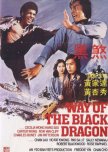
Way of the Black Dragon
3 oamenii au considerat această recenzie utilă
“It’s better in the Bahamas”
Way of the Black Dragon was the tale of two different movies spliced into one. The first half was a sleazy sexploitation story about two women kidnapped for hazy reasons and used as drug mules and sold into sex trafficking. In the second half the Black Dragon, Carter Wong, and an unknown Hong Kong actor showed up to try and rescue the women.This is the type of movie you could fast forward through the first half and miss almost nothing except the degradation of women for sport. I suffered through it so that I could write a review. It starts in Thailand where Allison and friend are kidnapped, forced to be drug mules on a plane to Hong Kong, sold into prostitution, some were murdered, etc. Around the halfway mark, Allison ends up being sold as a wife to Carter Wong. This lasts about 5 minutes. She tells him what happened and he vows to take the syndicate down. At the same time, Special Agent Bill Eaton aka the Black Dragon, an Interpol agent, discovers the trafficking and takes Allison back to Thailand where she is once again kidnapped. Carter, Allison’s brother, and The Black Dragon team up to take down the bad guys with lots of poorly shot car chases, motorcycle chases, and water chases.
The second half of the movie which was completely different in temperament might have been saved with great fight choreography, but the fights were generally poorly planned and underwhelming. Ron Van Clief had quick and powerful kicks and moves at times and at others were ridiculously let down by the slow, awkward choreography. He was entertaining to watch but the movie around him was a dumpster fire. Carter Wong didn’t have much to do other than get thrown into the deep end of the story without much motivation. I’m not sure who played Allison’s brother, I couldn’t find a listing. I’ve seen Hsiao Ho mentioned, and he was in the movie as one of the thugs, but not as the brother. The women were all but forgotten by the end of the movie.
The Way of the Black Dragon had choppy editing, an abysmal story, uninspired fights, and bad acting even for a kung fu movie. At one point Van Clief wears a t-shirt that says “It’s better in the Bahamas”. It would have to be, it couldn’t be any worse than this. Unless you are a completionist and want to finish The Black Dragon trilogy, I’d suggest skipping this one.
24 March 2024
Considerați utilă această recenzie?
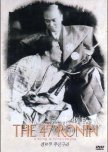
"A single drop of water has turned into a wave"
The 47 Ronin was not only based on a play but also inspired by a historical event on January 31, 1703. This film was shown in two parts, which makes writing a review difficult. It would be like watching the original Star Wars and the story stopping before they attacked the Death Star. The first part was almost two hours of introducing a plethora of characters and lots of waiting around while Councilor Oishi decides what the Ronin and vassals are going to do. Will they all commit seppuku? Attack the Shogun’s forces coming to evict everyone from the castle? Or will they seek revenge on the Lord who instigated the problem and escaped scot-free?Lord Asano attacks Lord Kira in the Shogun’s palace when the protocol expert repeatedly besmirches him. The price for his hotheaded action of drawing a sword where swords can’t be drawn is hara-kiri. The inspectors don’t believe he deserves the fate, in fact, he acted like a samurai should and Kira was the sniveling spineless samurai. Because of Kira’s political connections he’s released and aside from Asano losing his life, all of his properties are confiscated and his samurai become masterless Ronin. Councilor Oishi is slow and thorough, making sure the farmers and townspeople are taken care of while the Ronin are looking for blood. Theirs or the Shogun’s soldiers or Kira’s, they don’t particularly care. Oishi gains pledges from the remaining men, around 50, that they will abide by his decision. A year later, after a subterfuge plan finally comes to an end, Oishi can execute his heart’s desire. Roughly translated, “It’s go time!” and Lord Kira had better find a good hiding place.
Kawarasaki Chojuro as Oishi had to give the more nuanced role of a man whose decisions were repeatedly questioned by his subordinates. One wrong move meant disaster for all involved and more importantly they could not restore honor to the Asano family. At one point, he goes so far as to drive his wife away by carousing at the local pleasure house and refusing to see the anxious Ronin who are tired of waiting for revenge in order to sell his ruse. At this point there were so many characters introduced, the only other memorable ones were the initial investigator and an old friend.
When a film begins with “Defend the homes of those who fight for Greater Asia”, you know it’s probably a propaganda film or at least was expected to be one. It premiered one week before the attack on Pearl Harbor. While it was a call for loyalty, honor, and self-sacrifice for soldiers and citizens, Mizoguchi Kenji also included the Ronin questioning authority and acting on their own beliefs and willing to accept the consequences for those actions.
As a piece of art, the film was interesting if too long. I felt much like the impulsive Yasubei who was tired of sitting around and not knowing what Oishi’s ultimate plan was. Let’s go take this jerk down. But Oishi was a strategist who not only wanted to avenge his lord by killing Kira, he wanted to stand up to the Shogunate and expose favoritism and unfairness. It didn’t help that his plan was nearly derailed by well meaning allies. “Water will always drip from cupped hands.”
Part One was well made, it was Mizoguchi after all, but it began to feel like death by PowerPoint. Like Oishi and the other Ronin, I’m ready for the vengeance to begin and justice, if not prevail, at least not be completely denied.
“Even more than cherry blossoms
Scattered by the breeze
Memories of the passing spring
Bring unbearable regret”
18 March 2024
Considerați utilă această recenzie?
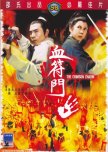
The Crimson Charm
3 oamenii au considerat această recenzie utilă
"No need to be rash. Someone will kill you tomorrow!"
Ivy Ling Po and Chang Yi avenge their master in The Crimson Charm. The film is an older Shaw Brothers, not a classic, but still watchable if you enjoy early martial arts movies.Chiang Tzu Chao and his daughter, Shang Ching, enrage the Yellow Gowned Chief of the Crimson Charm gang when Tzu Chao kills his son who was attacking a young woman. Tzu Chao and Shang Ching are befriended by the Blood Master during an encounter with Tsao Kang’s men. Tsao has decreed Chiang and all his disciples will die the next day. During the bloody battle, only three Chiang disciples initially survive-Han Yu, a badly wounded Yu Fang Fang, a mortally wounded Shang Ching, and the Blood Master. The three ultimate survivors will independently forge new skills and resolution to take revenge on not only Tsao Kang but the head of the Crimson Charm gang, Lin Han Su.
The acting covered a wide range in this film. Fang Mian as Tzu Chao can always be counted on to do a good job, but Shih Szu as his daughter was quite limited. At first, Ivy Ling Po’s performance was annoying as a pouty disciple but after she faced disaster, her character’s resolve and steely determination was a much more mature turn. Chang Yi’s appearance never seemed to change in films whether he was 26 as in this film or 40 in later films. James Nam showed a broader range of emotion as Ling Wu Lui, the Blood Master. Ku Feng appeared at the end of the film as the Crimson Charm Chief, bald, bare chested and sporting a leopard vest. Ku always seemed up for whatever directors threw at him.
There was a mix of sword work, other weapons, and kung fu. Shih Szu really struggled to be convincing holding a sword. Ivy Ling Po, especially in the second half of the movie did a much better job, even with her handicap. I always like when they allow the woman warrior to take her own revenge without the help of the male characters, and Ivy was able to shine during a battle in an inn. Chang Yi and James Nam both had good fights against the various Crimson Charm clans. One fight engaged tridents with annoying bells on them. The loud weapons might have made me go berserk as well. Body parts flew and #2 red finger paint ran everywhere throughout the movie.
The Crimson Charm had little story to it, only multiple revenge layers. And in the end, it showed just how destructive revenge can be as many of the clans lay in waste. While not one of the more well-known Shaw Brother films, it was entertaining once you get past some of the awkwardness of the first twenty minutes. For old kung fu movie fans. As always, I rate these niche films before 1990 on a curve.
17 March 2024
Considerați utilă această recenzie?

Fast and furious kung fu action!
I watched Kung Fu Jungle aka Kung Fu Killer years ago and quite enjoyed it. Upon rewatch I enjoyed the fight scenes again, and that the film had its own version of Yes Madam with a strong female officer in control of the investigation. Not that Donnie’s character listened to her much but her subordinates did and she got her chance to shine. The fight choreography was off the charts displaying a variety of styles. One of my favorite parts of the film were the homages to actors and stuntmen from the Golden Era of kung fu movies.Mo Hahou is serving time for accidentally killing a man in a fight when other martial arts fighters begin being murdered. He convinces Inspector Luk Yuen Sum to let him out to work on the investigation. Hahou escapes to convince his lover to go into hiding, but when Luk catches up with him agrees to let her stay with him so that he can help without being distracted. There’s no question where the story is heading, toward an epic fight between Hahou and the villain Fung Yu Sau and the movie delivers on its implied promise.
The story was thin but still managed to convey the ticking clock on men’s lives as the police and Hahou frantically tried to track Fung down and corner him. This was the perfect role for Donnie’s abilities, stern and determined. Charlie Yeung and Michelle Bai were thankfully not portrayed or written as inept (mostly) and helpless. Wang Bao Qiang brought a maniacal energy to the man obsessed with being the best and for whom kung fu meant death.
Donnie Yen choreographed fast, complex fights starting with fists and moving through kicks, grappling, and weapons. The final fight using CGI trucks was thrilling. Numerous older kung fu actors made cameos---Yuen Cheung Yan, David Chiang, Yuen Bun, Tsui Siu Ming, action choreographer Tony Leung Siu Hung, car stunt driver and choreographer Bruce Law, Tony Tam, Mang Hoi and Billy Chan to name but a few. Even Raymond Chow, the famous producer for and founder of Golden Harvest made a cameo.
Kung Fu Jungle was hard for me to rate. I’m not comparing it to Kurosawa Akira or Zhang Yi Mou films, but against other comparable films from the time. I recently watched Kill Zone and found this one to be far more entertaining. This was a bone crushing, fast moving, truck dragging bolt of energy that was fun to watch.
16 March 2024
Considerați utilă această recenzie?

Return of the Deadly Blade
3 oamenii au considerat această recenzie utilă
"I'm not old, I'm just mature"
Return of the Deadly Blade was the equivalent of click bait for me. The cast included Kurata Yasuaki, Norman Chu, and Lo Lieh. And then it hit me with the discombobulation virus, which lasted around 90 minutes.Master Li aka The Deadly Blade killed “Kam the Invincible Gold Rings” in a duel and then went into hiding for twenty years. Now suddenly everyone is looking for the famed bladesman. Siu Wan begins his trek to find Master Li taking on contenders as he goes. The Lonely Killer, a roguish lady’s man, is also looking for Master Li. He’s followed by a female fighter he defeated who apparently developed the kind of crush that could kill. A nobleman dressed in gold lame, which means you can’t trust him, sends out men to assassinate Lonely Killer, including a ninja. Siu Wan and LK keep crossing each other’s paths as does the lovesick warrior and a damsel in distress. All roads lead to the Tomb of the Hero and the showdown to discover, “Who’s your daddy?”
The story was convoluted and badly edited. Maybe there’s a longer version out there that tied the plot elements together better, but this version was disjointed and didn’t explain things well. Kurata Yasuaki finally had a role where he wasn’t a diabolical villain. Lonely Killer was no angel but usually Kurata played a burn down the orphanage kind of character in old kung fu movies. Kurata is skilled in karate and other forms of martial arts and his moves displayed his skill despite the limited hand-to-hand action. David Chiang as Siu Wan was David Chiang, I was never a fan of his work in these older movies. Reliable Norman Chu appeared as the wheelchair bound Master Li, a man tired of killing. Lo Lieh surfaced briefly as an umbrella fighting warrior who had to fight against Siu Wan and LK. While it saddened me that Lo was often relegated to smaller roles after the 1970’s I always enjoy seeing him on the screen. In a blink and you’ll miss him moment, Hwang Jang Lee was featured in the intro as Kam and his golden rings. Flora Cheung played both ingenue and femme fatale.
Since the writers didn’t make the story very clear, the action had to carry the movie along. Kurata had a fun fight against the Famous Four in a cave hot springs tub. Epic towel fight. He later had to face Bruce Leung in a cameo role. The three-way fight between Kurata, Chiang, and Lo Lieh was well choreographed. Later, when Kurata faced a ninja and the vengeful nobleman on a rope bridge, it felt like more could have been done with it. The grand finale fight that included quite a bit of wirework was a letdown.
Return of the Deadly Blade squandered a strong cast with a badly edited story. The most compelling reason to watch it is to see Kurata Yasuaki be able to play a lighter character than usual. Not a solid reason, but for fans of the genre a reason to try it.
15 March 2024
Considerați utilă această recenzie?
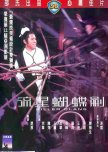
"A friend's weapon is the most fatal"
“Killers are like meteors. They appear in brilliance and vanish in no time. And they don’t have names.” Based on Gu Long’s book “Meteor, Butterfly, Sword”, Killer Clans tells the story of love and treachery between competing clans and even friends.Meng Sheng Wen and his blood brother, Yeh Hsiang, were cared for by the brothel owner Sister Ko. Ko receives assassination assignments after intimacy with a mysterious stranger, which she passes on to Meng as Yeh has lost his confidence and become a drunkard. Meng’s assignment is to kill Sun Yu the leader of the prosperous Longmen Clan. On one of his trips, he meets the beautiful Hsiao Tieh in the Butterfly Forest. She has a formidable father who does not tolerate swordsmen coveting his daughter. As Meng moves in closer on his target, it soon becomes apparent that he is not the only one with the wise and crafty Sun Yu in his sights, both enemies and friends alike will stop at nothing to bring the leader down and gain what is his.
Killer Clans is a Shaw Brothers classic. The sets and costumes were luxurious and there were numerous outdoor shots in picturesque scenery. The cast was stacked with SB actors, most of which did not last long as the body count was incredibly high. Double crosses, even triple crosses abounded. You know times were tough when the only man Sun Yu was able to trust was the man sent to kill him! My only quibble with the story is one that I often have with these older martial arts movies-their need to have bare breasted women and sexual assault.
Ku Feng was the highlight of this film as the Longmen Clan leader---caring, ruthless, adept, and shrewd, his backup plans had backup plans. Tsung Hua isn’t one of my favorites, but as the story often focused more on Sun Yu, not much was asked of him but to look grim. Yueh Hua played against type which was fine with me as it pushed him harder. One of my favorites, Lo Lieh, had a small role as Sun Yu’s supreme protector with a serrated round blade hiding in his hat.
The sword fights were actually choreographed well and not super slow as most were during this time, not nearly as fast as in the modern era, but still entertaining. The first time I watched this I wasn’t impressed with the swordplay but after watching, let’s just say, several martial arts movies since then, I’ve gained an appreciation for this film’s fight choreography. It also helped that I watched a restored copy this time and not a grainier version. Most of the well-known stuntmen actors from the 1970's could be seen jumping, flipping, diving, falling, and taking a beating as the story progressed.
Killer Clans was an action-packed tale of deceit, greed, and love. For anyone who enjoys old martial arts movies, it’s a must.
14 March 2024
Considerați utilă această recenzie?

The Brave Archer
3 oamenii au considerat această recenzie utilă
"I'm going to get revenge, I hope I see you later!"
The Brave Archer was Chang Cheh’s take on Legend of the Condors. This movie was the first of four following Kuo Tsing’s adventures. Chang was known for ushering in the more machismo and bloody era of kung fu so this film focusing on a romance was a rare departure for him.This film moved hard and fast through the source material. It had the longest intro of any kung fu movie I’ve ever seen. Not only did it have the typical narration explaining the basic historical setting but also the different characters and which group they belonged to during the opening on a stage. As someone who has not read the book it was my first clue that this two-hour film was going to be packed with characters with little time to develop.
The story began with the classic tale of two babies separated and trained by different people, babies who were born to be blood brothers but who ended up on opposite sides. Alexander Fu Sheng played the “clumsy, slow” but good-hearted Kuo Tsing who was trained by the 7 Weirds. He runs afoul of the deadly Iron Corpse Mui Chiu Fung. Later he befriends Huang Yung dressed as a boy with romance soon to blossom. There were not one, but two battles for marriage scenarios, someone came back from the dead, a large snake played a role in Kuo’s development as did two other masters he made the acquaintance of.
Famous kung fu faces passed by in nearly every scene. Alexander Fu Sheng played a perfect not too bright hero. Tien Niu as Huang was a fiery companion for him. Five actors from the Five Deadly Venoms had special appearances. Ku Feng made for an entertaining 9 Fingered Beggar, and one of my favorites to see. Johnny Wang in silver lamé looked every inch a bad guy. Kara Hui had a short, but important role along with Dick Wei. Yu Hoi Lun played the female fighter so fierce with her lethal Skeleton Claw technique that most of the men in her path ran away. There were four female warriors and not a bare breast in sight, just competent women.
The fights were unimpressive. Most of them were kung fu posing and not very fast. At least Ku Feng knew how to keep them interesting with his acting. Yu Hoi Lun scared her opponents with her fierceness rather than lightning speed. Philip Kwok showed off his athleticism with his slightly mad master in an awful wig. Shaw Brothers didn’t scrimp on the sets where all the action took place, including Peach Blossom Island.
If you’ve watched one of the dramas based on Jin Yong’s books or read the books themselves, this will likely look like a highlight reel. If you don’t have any experience with either, like me, the characters are tough to keep up with. I had to make a cheat sheet to remember the different characters and factions involved as the action moved quickly from one group to another and then suddenly came to a dead stop. For a 1977 Shaw Brothers movie it looked good and for a Chang Cheh 1970’s kung fu film it was a more well-rounded story than many of his were.
10 March 2024
Considerați utilă această recenzie?

"Betting on yourself is true gambling"
13 Assassins managed to transcend the average samurai film not only with the political maneuverings but with a final hour that was explosive and thrilling. Two men on opposite sides had to decide if samurais serve their master or the people. The answer would be written in blood.Doi Toshitsura, the Shogun’s senior advisor, is appalled at the atrocities committed by Lord Naritsuga against noble families and commoners alike. Rape, torture, murder, dismemberments—everyone was a plaything to him. The Shogun refused to have him step down fearing chaos while Doi recognized that the vengeful clans would likely revolt when Naritsuga joined the Shogun counsel. Doi needs a solution and his turns out to be Shimada Shinzaemon, a retired samurai who worked under the previous Shogun. Shinza’s eyes light up when given the chance to help the people and die a glorious death. Shinza puts together a team of 12 samurai, “nobodies” who have no titles, families, or affiliations. His goal is to kill the Caligula of Japan on the lord’s annual trip home. Shinza’s old school buddy who works for Naritsuga stands in his way. Cunning and connected, Hanbei will prove a clever foil to Shinza’s plans.
The first hour or so of the film saw the reasons for the team and the team pulling together and training. “There’s no fair play in battle!” On the way to their destination, Shinza’s group picks up an unlikely ally that resembled Toshiro Mifune’s mad samurai in The Seven Samurai. The final 45 minutes of the film showed Shinza’s and director Miike Takashi’s genius. I’ve watched a lot of action films and never have I seen the element they used to great effect in this film. As expected, there were buckets and buckets of blood spilled but for the most part it never turned truly gory. The battle was brutal, with Samurais utilizing whatever weapons were nearby.
Yakusho Koji as Shinzaemon was perfect. He conveyed the warrior’s desire to return to battle, his horror at the cruel lord’s actions, patience when a strategy called for waiting, and humor even in the face of death. And above all, he displayed the sense of honor a samurai should have, not only for the Shogun, but also for the people. Most of the other 11 samurai were difficult to discern between. I was able to familiarize myself with about six of them. I wish they’d spent more time developing them. Inagaki Goro gave Naritsuga a mad emperor vibe that only grew stronger as the blood began to flow. The cinematography encompassed not only the towns and interiors, but the dense Japanese mountains the samurais had to trek through. Some of the shots were breathtaking.
13 Assassins maintained the tension of Samurais going against the code in order to murder the second man in charge for a greater good. Not one of the 13, well, maybe one, thought they would walk away alive and all were ready to die for their cause. The last 45 minutes was utterly thrilling with the explosive action and wondering if the 13 would succeed and if any of them would survive. If you enjoy samurai films, you’ll find few better than this one.
9 March 2024
Considerați utilă această recenzie?

 54
54 191
191 11
11






















